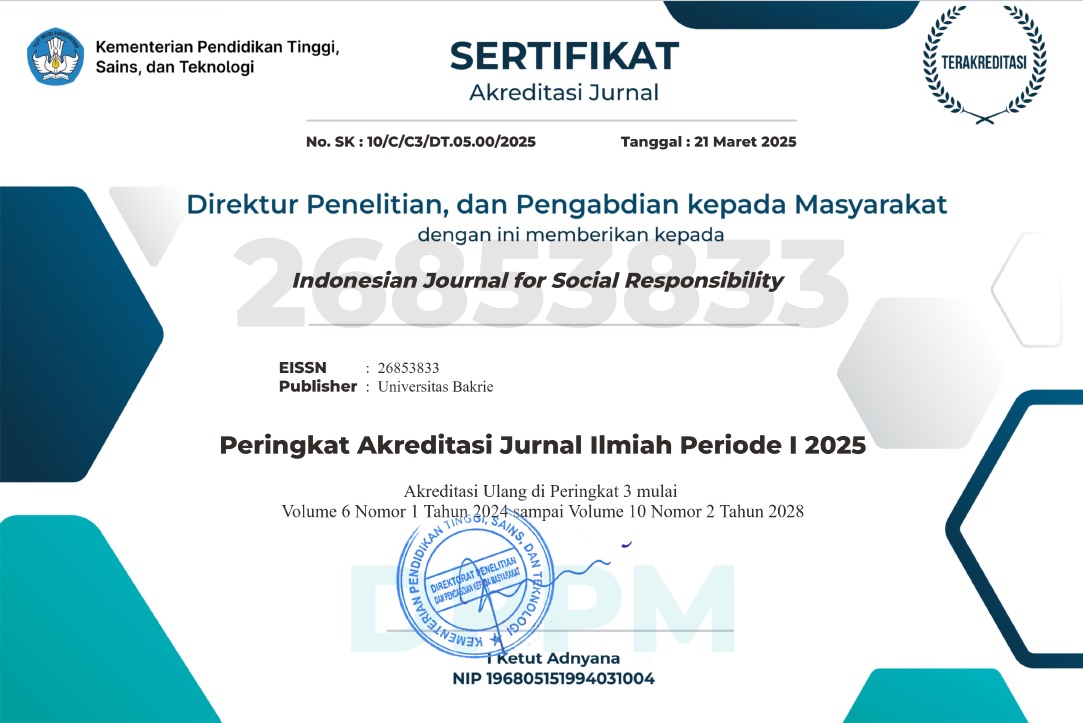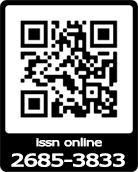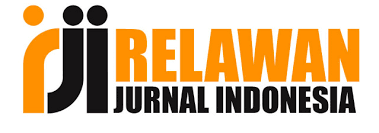Model Sistem Penyelenggaraan Pemberian Makanan Tambahan (PMT) Balita melalui Program Rumah Gizi Sehat (PROGES)
DOI:
https://doi.org/10.36782/ijsr.v7i01.409Keywords:
Children Feeding, PMT Model, Posyandu, Nutrition House, StuntingAbstract
The Healthy Nutrition House Programme (PROGES) was implemented by Sahid University (USAHID) to improve the nutritional quality of young children at risk of stunting and malnutrition in RW 06, Pancoran Mas, Depok City. This programme focuses on creating a sustainable supplementary feeding system model (PMT) by engaging community members as donors. The first phase of PROGES successfully involved 30 participants from all RW06 residents and community leaders from the Integrated Service Post (Posyandu) and Family Empowerment and Welfare (PKK) cadres. Prior to the socialisation of the programme, the participants were asked several questions through a questionnaire regarding their initial views on the programme, which consisted of: experiences with the programme, types of food usually donated for PMT for young children, main reasons for participating in the programme, and perceptions of benefits if implemented for the RW 06 community. This was followed by a Forum Group Discussion (FGD) to agree on a PMT implementation system model that would meet the needs of the residents. The results of the FGD for the PMT implementation system model started with data collection on the recipients of donations, identification of donors, and collection of food ingredients from the residents, which were then stored in the Healthy Nutrition House RW 06 according to cooked or raw conditions. In addition, food distribution is carried out once a month before Posyandu, with priority given to underprivileged households with malnourished young children at risk of stunting. This first phase of the PROGES programme went smoothly and a sustainable PMT system model was successfully agreed with community leaders and residents of RW 06.
Downloads
References
Armansyah & Haqi, M. (2023). Disrupsi dan Adaptasi Bonus Demografi Menyongsong Indonesia Emas 2045. Solok: PT Insan Cendekia Mandiri Group.
Fajar, S. A., Anggraini, C. D., & Husnul, N. (2022). Efektivitas Pemberian Makanan Tambahan Pada Status Gizi Balita Puskesmas Citeras, Kabupaten Garut. Nutrition Scientific Journal, 1(1), 30-40.
Hadju, V. A., Aulia, U., & Mahdang, P. A. (2023). Pengaruh Pemberian Makanan Tambahan (PMT) Lokal Terhadap Perubahan Status Gizi Balita. Gema Wiralodra, 14(1), 105-111.
Hamsinah, H., Jannah, M., Ardhoyo, N. A. W., & Meliala, Y. H. (2022). Efektivitas Penggunaan Whatsapp Group di Kalangan Warga. Jurnal Cyber PR, 2(1), 12-24.
Haratua, C. S., Muhyidin, R. A., & Jagat, M. A. (2023). Fenomena Stunting di Indonesia dan Tantangan Human Resource Development (HRD). SINAU: Jurnal Ilmiah Pendidikan dan Pembelajaran, 2(03), 98-106.
Humas BKPK. (2023, February 3). Dua Fokus Intervensi Penurunan Stunting untuk Capai Target 14% di Tahun 2024. Badan Kebijakan Pembangunan Kesehatan. Diakses dari: https://www.badankebijakan.kemkes.go.id/dua-fokus-intervensi-penurunan-stunting-untuk-capai-target-14-di-tahun-2024/
Kementerian Kesehatan Republik Indonesia. (2023). Buku Saku Hasil Survei Status Gizi Indonesia (SSGI) 2022. Kementerian Kesehatan Republik Indonesia. Diakses dari: https://repository.badankebijakan.kemkes.go.id/id/eprint/4855/3/Buku%20Saku%20SSGI%202022%20rev%20270123%20OK.pdf
Kementerian Perencanaan Pembangunan Nasional (Bappenas) & United Nations Children’s Fund (UNICEF). (2017). Laporan Baseline SDG tentang Anak-Anak di Indonesia. Jakarta: BAPPENAS dan UNICEF.
Komalasari, H., Putri, D. A., Arzani, L. D. P., Naufali, M. N., Hidayah, N., & Heldiyanti, R. (2023). Sosialisasi Mengenai Gut Microbiota dan Probiotik Serta Perannya Bagi Kesehatan Saluran Cerna Pada Anak Gizi Kurang. ADMA: Jurnal Pengabdian dan Pemberdayaan Masyarakat, 4(1), 117-126.
Norcahyanti, I., Pratama, A. N., & Pratoko, D. K. (2019). Upaya Pencegahan Stunting dengan Optimalisasi Peran Posyandu melalui Program Kemitraan Masyarakat. Dedication: Jurnal Pengabdian Masyarakat, 3(2), 73-80.
Nurulita, N. (2021). Penyuluhan Agama di Era Digital. Bandung: Lekkas.
Rahmawati, A. D., Lala, E. N., Sari, I. N., Mulhadi, M., & Dheanty, N. (2024). Implementasi Program Pemberian Makan Tambahan Untuk Pencegahan Stunting Di Desa Talaga Warna. Inspirasi: Jurnal Ilmu-Ilmu Sosial, 21(1), 933-945.
Sugarda, Y. B. (2020). Panduan Praktis Pelaksanaan Focus Group Discussion Sebagai Metode Riset Kualitatif. Jakarta: Gramedia Pustaka Utama.
Sugiarti, M. D., Suwarto, S., & Saptaningtyas, H. (2023). Pemberdayaan Kader Kesehatan dalam Pencegahan Stunting di Desa Woro Kecamatan Kepohbaru. Innovative: Journal Of Social Science Research, 3(6), 2343-2350.
Tim Nasional Percepatan Penanggulangan Kemiskinan. (2017). 100 Kabupaten/Kota Prioritas untuk Intervensi Anak Kerdil (Stunting) Volume 3. Tim Nasional Percepatan Penanggulangan Kemiskinan. Diakses dari: https://www.tnp2k.go.id/images/uploads/downloads/Binder_Volume3-3.pdf
Utomo, S., Heriansyah, D., Mauizah, A. Z., Apriliani, D. R., & Ruslan, I. (2021). Efektivitas Kampanye Moderasi Beragama Berbasis Whatsapp Group pada Masyarakat Desa. Jurnal Riset Agama, 1(3), 667–681.
Downloads
Published
How to Cite
Issue
Section
License
Copyright (c) 2025 Wardina Humayrah, Almira Nuraelah, Laila Febrina

This work is licensed under a Creative Commons Attribution-NonCommercial 4.0 International License.















